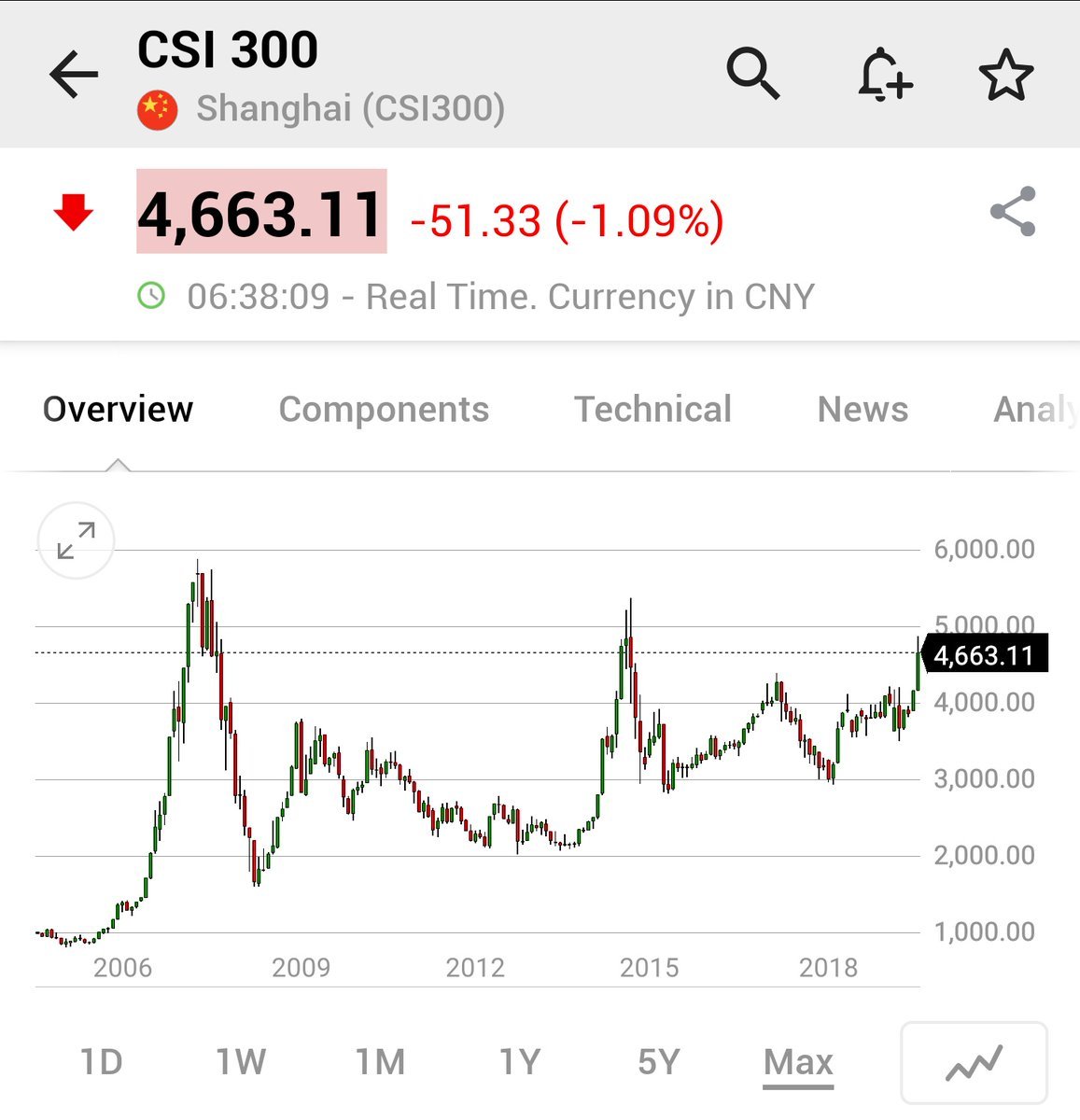
Good morning, and welcome to our rolling coverage of the world economy, the financial markets, the eurozone and business.
Investors have plenty to worry about today.
Tensions between the US and China are rising again, as American politicians struggle to agree a new stimulus package and the economic cost of Covid-19 mounts.
China’s yuan weakened overnight, dropping below 7 against the US dollar, after the US ordered China to shut its consulate in Houston amid accusations of spying.
First Squawk
(@FirstSquawk)CHINA’S YUAN OPENS TRADE AT 7.0088 PER DOLLAR VS LAST CLOSE AT 6.9989
President Trump has hinted that he could order more consulates to close, telling reporters that a fire was spotted on the Houston consulate’s grounds after the US Department of State ordered the closure.
“I guess they were burning documents and burning papers.”
Beijing slammed the move as an “unprecedented escalation,” and there’s talk it could retaliate in kind.
China’s CSI 300 stock index tumbled 2% at the start of trading, before slowly recovering its losses as traders digest the situation:
Investing.com
(@Investingcom)*CHINA’S BLUE-CHIP CSI300 INDEX DOWN MORE THAN 1% IN MORNING TRADE pic.twitter.com/9rWAJ61lNP
A renewed US-China trade war is just what the markets don’t want to see right now. It would disrupt the world economy, just as countries around the world try to return to growth.
Mark Haefele, chief investment officer at UBS Global Wealth Management, fears we could face months, or even years, of such jitters:
“US-China tensions could persist into the US election in November. A change of leadership might not mark the end of pressure on China from the US.
Investors around the world need to consider the implications of trade policy and other major election policy issues for their portfolios.”
Covid-19 continues to wound the global economy too, with South Korea falling into its first recession in 17 years:
David Ingles
(@DavidInglesTV)South Korea enters first technical recession since 2003. pic.twitter.com/gvEDycvnbi
The Covid-19 pandemic continues to rage, with California recorded its highest number of new cases in a single day and the global total of cases exceeding 15m.
With the reopening of America’s economy stalling, Senators on Capitol Hill are struggling to agree a new stimulus package before the current deal expires.
Democrats are pushing to extend benefits for the unemployed, while the White House favours a payroll tax cut to put more money into the pockets of those who are working.
Jeff Stein
(@JStein_WaPo)The number I’ve heard more frequently (including today) is that GOP will propose $200/week; Pelosi proposes $600/week; & they end up somewhere around $400/week.
But this report suggests GOP will come in lower, at ~$100/week, which is lower than what Trump said yesterday https://t.co/3cCGRwbhQ5
Jim Reid of Deutsche Bank says hopes of a quick breakthrough are fading:
The still high caseload across the US means that the need for additional stimulus is still fairly acute, however optimism surrounding a bill being enacted in the next 2-3 weeks is fading.
Congressional Democrats and Republicans remain nearly $2tr apart in funding. Senate Minority Leader Schumer said late yesterday that it would not make sense for Democrats to start talking to their Senate counterparts until Republican leadership had a bill to work off.
The agenda
- 9.30am BST: Latest ‘fast indicators’ of Covid-19’s impact on UK economy released
- 11am BST: CBI index of UK business confidence
- 12pm: Bank of England’s Jonathan Haskel webinar: “From Lockdown to recovery – the economic effects of COVID-19”
- 1.30pm BST: UK weekly jobless figures


